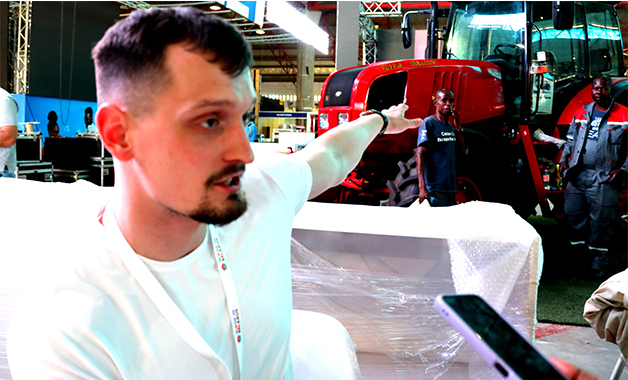Entrepreneur turns litter into gold

Miriam Mangwaya
MOST people think empty soft drink or beer cans are litter.
Mr Isaac Pisirai, a 27-year-old Chivhu man, has proved them wrong.
To him, empty aluminium soft drink and beer cans are a precious raw material essential for producing three-legged pots and other utensils, from which he is making a profit.
After failing to secure a job, Mr Pisirai could not face the prospect of watching his wife and two children “starving to death”. When he passed a backyard industry in Mucheke, Masvingo, and was offered a job as a mobile vendor selling three-legged pots made from aluminium, he took it.
“That was in 2009,” he recalled. “However, earnings were not enough to pay rentals, feed myself and provide enough for my wife and children back in the rural areas. As I was working in that industry, I observed closely the whole process of producing the pots. Then I braced myself to start up my own business.”
He started the business and introduced a new method of production, as well as a new source of raw materials, discarded aluminium cans, generating income at an almost zero cost.
“The aluminium cans work the same way as the pure aluminium that is used by other manufacturers,” Mr Pisirai said.
“I can make 20 three-legged pots per day, selling the smallest at $3. I can also make very big pots up to size 30, which I sell at $300 to churches, burial societies and schools.”
Mr Pisirai says the process of manufacturing the pots was not laborious. It involves picking up the aluminium scraps, melting and moulding them.
“It is only the unbearable heat from the furnace that irritates me,” he explained.
“I simply need at least 30 minutes to produce one pot, depending on the sizes I will be making.”
Earning as much as $300 per month, Pisirai has managed to secure a rural home, purchase two beasts and provide enough food and other necessities for his family.
The entrepreneur injected $50 to start production and run the business. He did not buy any of the equipment that he uses to manufacture the pots.
The furnace is just an ordinary drum, which he says had been thrown away as waste. Seeing its potential, he picked it up and it is now useful “machinery” for melting the aluminium.
Mr Pisirayi buys bentonite, a chemical that he mixes with soil to smoothen the pots during the moulding process.
He also purchases coal, the fuel suitable for the high temperatures needed for aluminium to melt.
After successful exploitation of the new idea of using cans as a raw material, Mr Pisirai invited two of his unemployed friends to join him. Since then, the business has diversified, venturing into the production of cutlery and coffin handles, among other products.
Mr Tendai Tapera (25), who partnered with Mr Pisirai, said he did not anticipate earning a living out of discarded cans.
“Nevertheless, I am satisfied with the earnings I am getting here and I have stopped searching for another form of employment since I can provide enough for my wife and kid,” Mr Tapera said.
But Mr Pisirai said he wished he could construct a better working cabin to improve his working conditions. He also cannot afford the process of registering his company so that he can operate formally.
“Right now, I cannot make my work place better than it is, lest it is destroyed by Chikomba Rural District Council authorities because I am not registered,” he said.
Informal sector operators have clashed with municipalities around the country in the past few years, due to their insistence on operating in undesignated areas. Several of them have had their stands and goods destroyed during conflicts with municipal police.
However, Chivhu Business Development Community chairperson Mr Maxwell Makurumure said his committee was working in partnership with Chikomba Rural District Council to avail stands for informal business people, to encourage self-sustenance.
He said: “Recently, a number of informal business owners in Chikomba District benefited from the programme and acquired stands for their mini-industries. They are now operating formally.”
Mr Makurumure also said the business development community was encouraging business owners to participate in business expos where they could showcase their products to boost creativity.
In a telephone interview, the Minister of Industry and Commerce Mike Bimha, commended Mr Pisirai for “thinking outside the box” and becoming an entrepreneur. Minister Bimha urged the public to fully utilise the resources in their vicinities to improve their living standards.
He said: “Currently we are working together with the Ministry of Small to Medium Enterprises to link small businesses with large corporate companies for them to gain expertise and boost production in the country. We have even set up an SMEs office in Chivhu so that the informal business operators can be advised on how to operate according to state regulations.”









Comments